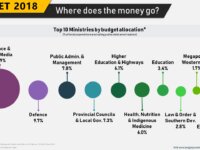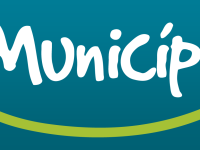‘Budget Promises: Beyond Parliament’ is Sri Lanka’s pioneering budget monitoring platform, created to answer two basic questions about the government’s annual budget – 1) is the government doing what they are saying? and 2) is the government saying what they are doing? Since its launch, the platform has been a primary source for citizens, media, and researchers to track progress on budget promises.
Innovation Tag Opengov: communication
Budget Monitor is a ICT tool of SAOG that promotes transparency,accountability,efficiency of public administration through increased citizen scrutiny. BM establishes two way communication with taxpayers:
1.provides sophisticated budgetary information by easy-to-interpret visualizations and dynamic graphs for free and
2.enables citizens to get involved in audit process by informing SAOG about deficiencies in public spending,providing recommendations and contribute to improved public service…
Decidim est une plateforme numérique imaginée par la mairie de Barcelone dès 2016 pour créer et coordonner des espaces et des processus participatifs, qui vise à étendre et faciliter l’accès à la participation citoyenne en vue de la co-construction et de la co-production des politiques publiques. Il s’agit d’un projet européen open source : son code est ouvert et libre ; en d’autres termes, tout le monde peut le voir, l’utiliser, le copier ou l’enrichir.
We have launched the Citizens’ Packet to make Silesian Voivodeship Office (SVO) a more friendly and serviceable place for users. The core of the packet consists of practical facilitations for our clients who seek information or help. Our client-oriented solutions comprise diverse solutions on every level of our customer care and spread to every organisational unit in the SVO.
The Citizens’ Packet is available online via our brand-new official website.
Proactive Transparency initiative in Bosnia and Herzegovina is the first policy to address proactive disclosure of government information, co-created by the public institutions and civil society organisations. The result of of this collaboration was a policy document, 38 defined standard pieces of information, research conducted by civil society and improvement of government transparency.
The Regione Emilia-Romagna has, since 2014, developed a pilot strategy to promote and coordinate the use of social media by local police departments.
Keeping in touch with citizens is the core business of every local police, but today, traditional communication tools and skills are not enough to respond to citizens' needs and demands.
As such, we established a network of people inside local police departments to share expertise in the area of social media.
My Municipality (Meu Município) a free public portal that organizes and makes available the financial performance of 90% of the Brazilian cities in a intuitive, user-friendly way. It is used for citizens to understand, monitor and compare how Brazilian municipalities collect and spend our money. My Municipality is also designed for public managers in their analysis and decision-making about the city's directions.
The Electronic System for the Citizen Information Service (e-SIC) was developed to enable, in a cost-effective and efficient way, the reception and processing of access to information requests. The system facilitated the implementation of the Access to Information Act and serves as an essential tool for monitoring its implementation.
Case Study
Implementation of the Access to Information Act, Electronic System for the Citizen Information…
Law nº 12.527/2011, the Access to Information Act, has come to materialize, in practice, transparency mechanisms of public information predicted in the 1988 Brazilian Federal Constitution, and in other several international treaties.
The Law consolidates the understanding that public information is owned by society, not by public bodies that produce or keep it.
Reviewing and improving mechanisms of various processes, such as increasing transparency and knowledge management, were implemented.



